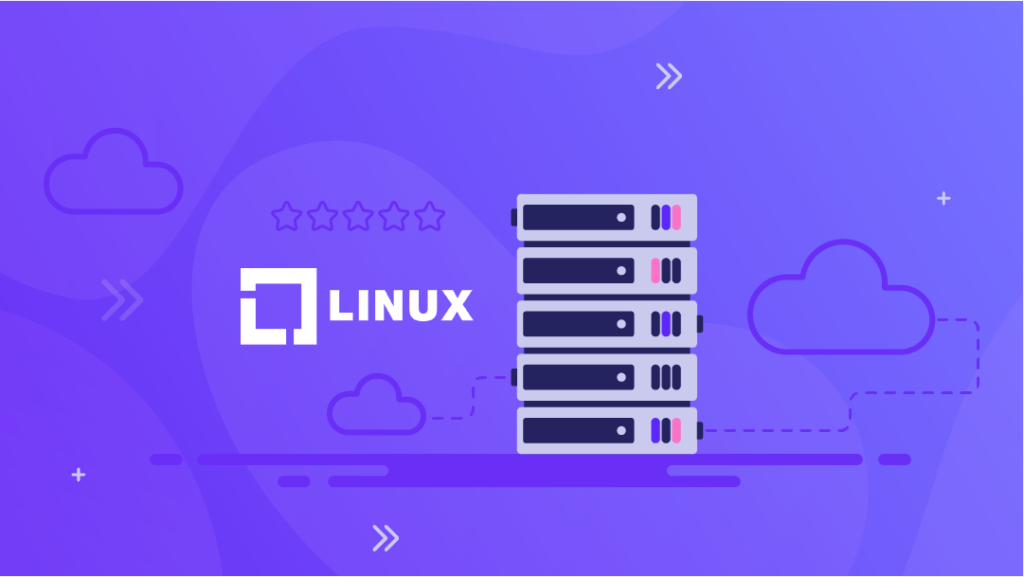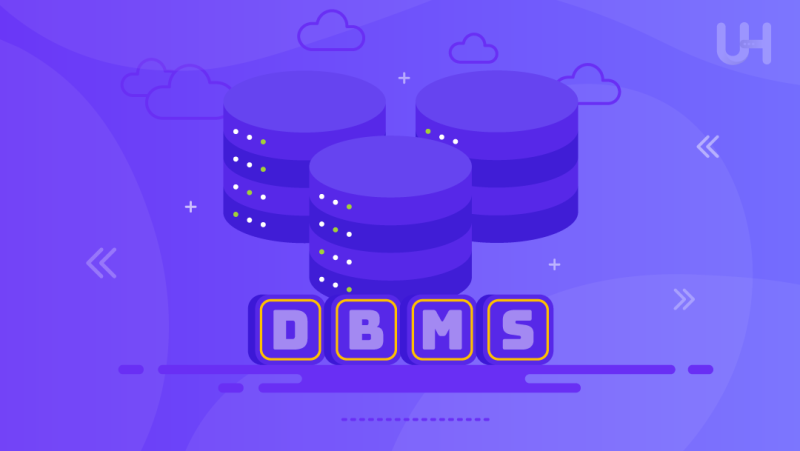Data continues to grow exponentially, with 90% of the world’s data generated in the last two years due to the expansion of internet users. While the data is tremendously valuable to businesses, data growth raises several issues, which include decreasing application performance and compliance problems.
The escalating demand for robust database management systems to effectively handle the ever-expanding volume of business data has intensified. In this article, we’ll cover the types of DBMS, their advantages, and how VPS hosting enhances DBMS performance.
What Is a DBMS?
Database management involves actual work in managing databases, which comprises all activities, from design to implementation, maintenance, and repair. All these factors maintain data accuracy, availability, and accessibility to users’ requirements. Effective database management encourages informed decision-making and organizational efficiency.
In addition, a framework makes a structured approach possible for data organization, thus enhancing systematic operations and data handling in an institution. This, therefore, remains the strategic element of having the most crucial information used to the optimum level while at the same time ensuring security for business processes.
Types of DBMS

DBMS systems can be categorized based on the data model they use:
Hierarchical Data Model
A Hierarchical Database Management System (DBMS) stores data in the same manner as a family tree and is organized just like a tree. For each “node” or record, there is one, and only one, parent, but there can be numerous children. There exists an apparent, simple hierarchical relationship between the data elements.
It is a very efficient model for those scenarios where the data possesses inherent parent-child relationships and, therefore, through previously identified pathways, allows for the rapid retrieval of information. However, this rigidity is a limitation, especially for a complex many-to-many relationship, reducing flexibility for broader use beyond structured hierarchies.
Network DBMSs
The Network DBMS builds on the simplicity of hierarchical systems. It allows every record to be linked to any number of parent and child records, thereby creating a lattice or network structure. This model is more flexible than the hierarchical one and can control more challenging relationships. It is advantageous in applications where items have many dependencies, for example, in supply chain management or complex project scheduling systems. The network model allows complex relationships to exist; although it is complicated to design and maintain, it must be well-planned and managed.
Relational Database Management System (RDBMS)
Relational Database Management Systems (RDBMS) are the most popular database in practice today. They are organized repositories where data is stored in tables and is interlinked with the similarities or commonalities in the features of the database attributes. This allows flexibility and convenience, supporting quite complex queries and transactions involving some tables. Technology is central to sectors with high demand for reliability and efficiency, like online banking and e-commerce businesses.
Object-oriented DBMS
Combining the database functionality with the principles of object-oriented programming, an object-oriented DBMS models information much like how an object would be stored in an object-oriented programming language such as Java or C++. Such a model suits applications developed in object-oriented programming languages quite well when data management is smooth through encapsulation, inheritance, and polymorphism. It is more beneficial in applications demanding complex data modeling, such as graphic rendering systems or simulation software.
NoSQL DBMS
The NoSQL database management system design supports large volumes of data and real-time web applications with a distributed, extensive set of data that supports an easy addition of nodes. Scaling such databases is easy because schema-less data is horizontally expandable. Data can be stored as critical values, documents, graphs, or wide-column stores. They are heavily used in high-traffic websites, real-time analytics, and advertising technologies where performance and horizontal scaling become crucial issues.
Enhance Your Database Management System!
Need superior Database management? UltraHost offers MySQL hosting to deliver top-tier performance for high-traffic sites and real-time applications. Scale effortlessly with UltraHost and transform your data management today.
Advantages of DBMS
Using a Database Management System (DBMS) brings a multitude of benefits that enhance organizational efficiency, data security, and overall data handling capabilities:
Better Data Sharing and Management
A database management system allows for the simultaneous access of many users within a controlled and disciplined environment. This power significantly changes organizational collaboration, where the different departments can easily access and share data smoothly and effectively. A DBMS reduces such a problem by controlling data in a centralized approach that nullifies any instances of silos and supports a more collaborative workspace.
Better Data Security
A DBMS also features various solid frameworks that can establish rigid data privacy and security rules. Access control and authentication allow a system to ensure that no sensitive information falls into unauthorized hands. Database management systems have security measures that help with data privacy and data security, as well as legal and ethical standards for data protection.
Data Integration
DBMS has been able to treat all operations of any organization as a single entity because it allows more expansive access to well-managed, consistent data throughout the organization, irrespective of the data residing in whichever department. This way, it facilitates much better decision-making for strategic planning and execution based on comprehensive insights gleaned from across the organization.
Reduced Data Inconsistency
One critical feature of a DBMS is its ability to reduce data redundancy and inconsistency. Centrally managing data and serving many applications ensures that the most accurate and up-to-date data is available to all users, reducing the chances of data discrepancies.
Improved Data Accessibility
The construction of DBMS systems is for the easy retrieval of data. Users can do data extraction and modify it by running complex queries. This can allow for the extraction of various datasets that can later be grouped together for different analyses and reports, thus facilitating a more dynamic set of business practices.
Routine Backup and Recovery
The other very significant features of a DBMS are data integrity and the most negligible probability of data loss. Automated data backup and recovery processes are a crucial part of the system, as such provisions assure the organization that restoring data is possible when it has fallen prey to a system failure or other data loss conditions. Such routine maintenance ensures the protection of data assets for organizations and the ability to continue operations.
These benefits collectively underline the importance of DBMS in modern data management, affecting efficiency in operations, security, and strategic data use.
Enhancing DBMS Performance with VPS Hosting
VPS hosting becomes very important in DBMS and business cases where the speed and reliability of data access are crucial. VPS services make scalable and secure hosting environments possible for deploying DBMS applications. Here are some ways a VPS can enhance the capabilities of a DBMS:
Linux VPS Hosting
The Linux platforms easily support many database management systems, including MySQL and PostgreSQL. Linux VPS hosting provides a stable, low-cost environment with good flexibility and control, so choosing it for database management is optimal.

Unmanaged VPS Hosting
Unmanaged VPS hosting requires a technical organization to manage the hosting server, the operating system, and the software application. This configuration allows a business to set up its DBMS for the best possible performance and security.
Advantages of Data Center
When hosted in a high-standards data center, a VPS provides a reliable connection with much better bandwidth and increased physical security. In data centers, databases operate more effectively due to scale, which is at the maximum level, thus maximizing efficiency and minimizing downtime risks.
Employ VPS as you do in your database management strategy, and you can keep the core resources necessary for efficiently and securely meeting data VPS storage needs. Whether you need to manage high-traffic online applications or complex business operations related to data, VPS solutions must enforce a robust DBMS architecture with flexibility and performance features.
Conclusion
In conclusion, contemporary data handling critically relies on Database Management Systems, offering models of structured support to optimize, add security, and continue supporting decision-making. The use of DBMS, both independently and in conjunction with other technologies, such as VPS hosting, enhances the performance and scalability of a system. At the same time, data-driven strategies continue to take center stage in current business operations concerning operations and management.
Explore Ultahost’s Best Managed PHP Web Hosting with MySQL for PHP-powered dynamic content and seamless database management. Benefit from top-notch performance, unmatched security, and expert support tailored to your PHP-based projects.
FAQ
Why is effective database management important?
Good data management ensures that data is accurate, available, and accessible. This will promote good decision-making and efficiency.
What are the categories of DBMS?
DBMSs include hierarchical, network, relational, object-oriented, and NoSQL systems, each oriented to a specific need in data modeling.
How does VPS hosting improve DBMS performance?
VPS hosting is for the provision of features that allow DBMS applications to deploy speed and access data with optimization, reliability, and security.
Which is the most popular DBMS today?
The Relational Database Management Systems (RDBMS) have found wide application because of a more structured repository structure and linked data tables.
What is the role of the data center’s infrastructure in DBMS performance?
Data centers have high-speed, reliable connectivity, extra bandwidth, and immense physical security, which boosts DBMS’s efficiency while minimizing downtime risks.










